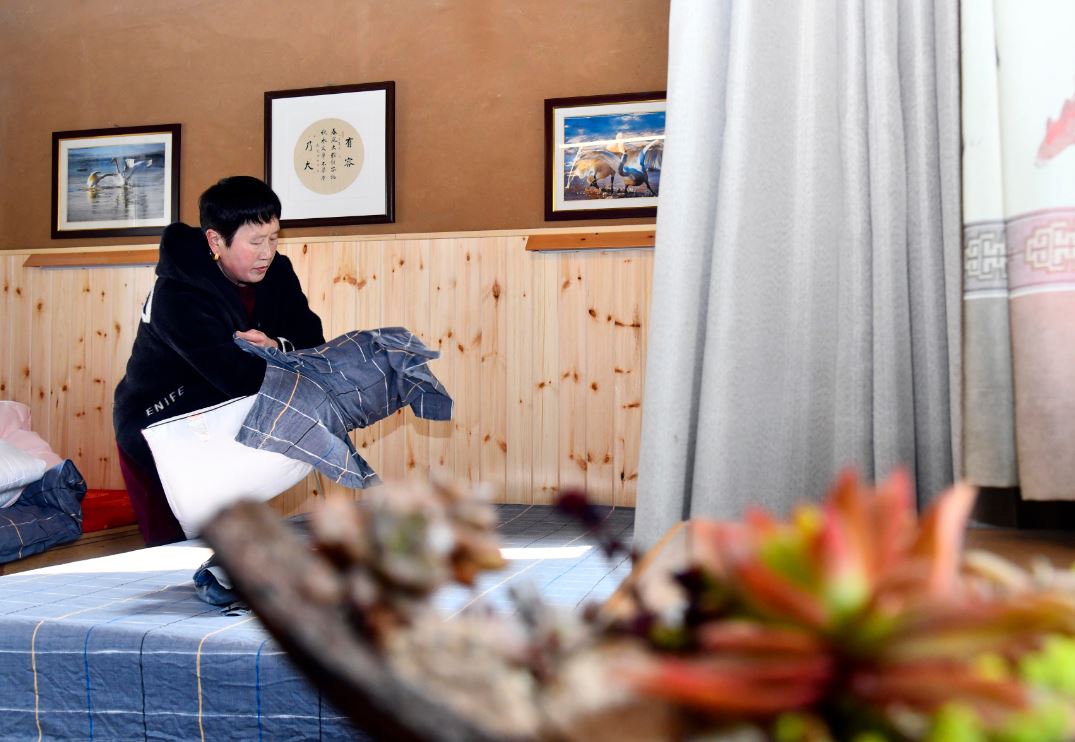Spurring shared home biz to rebound


Online platforms that list short-term shared accommodations have been hit hard by the COVID-19 pandemic as hundreds of millions of guests canceled their reservations and stayed indoors under self-quarantine.
I was one of them. I had planned to go to Japan with my mom in March to experience sights of the most brilliant cherry blossoms. So, I went ahead and booked air tickets as well as accommodation in advance through short-term lodging services online. But I had to cancel my travel plan as the novel coronavirus spread rapidly across the globe. Luckily, I received full and quick refunds.
According to data from Chinese shared-home listings provider Xiaozhu, China's vacation rental business has lost more than 80 percent of orders during the Spring Festival holiday (Jan 24-Feb 2).
Nearly 70 percent of hosts in tourist hot spot Hainan province lost more than 100,000 yuan ($14,138) directly due to COVID-19.
And 95 percent of the hosts said the biggest difficulty in operations was disappearing rents.
In order to help landlords tide over difficulties, Xiaozhu has taken a series of measures such as waiving or reducing its own commission fees, collaborating with Xianyu, Alibaba's online platform for used goods, to offer discounts and coupons on long-term rentals, and launching livestreaming sessions to promote short-term rentals of shared homes and to introduce local specialties.
Peng Tao, president of Airbnb China, said he is fully aware of the impact of the public health emergency on the short-term vacation rental industry, especially the challenges placed on hosts.
The company is helping accommodation providers to cope with the epidemic's impact and rebuild their confidence by launching a series of training courses for hosts.
These courses cover household management, redesigning homestays, innovating operations, customer/guest communications, and best practices in disinfection, and epidemic prevention and control.
According to Kantar Consulting, the three business segments of tourism, catering and entertainment will have the greatest potential for a rebound in consumption whenever the epidemic ends.
In one of its surveys, 78 percent of respondents (consumers) said they will return to spending on travel.
"The outbreak has had a heavy impact on the whole tourism industry, but we believe that its effect will likely be temporary. The tourism and homestay markets would see a rebound and scale a new consumption peak when the epidemic ends," said Li Zhenni, executive vice-president and chief business officer of Tujia.
Li has a lot of confidence in the recovery of the industry. "The epidemic has only suppressed people's travel demand in the short term but their yearning for high-quality life and beautiful natural scenery has never stopped."
Domestic tours and short-haul trips have been favored by consumers, who attach more importance to the quality and cleanliness of shared homes they rent, Li said, adding the threshold will be increasingly higher and service quality will be improved accordingly.
- Vacation rental websites see significant growth on Spring Festival rush
- Home-sharing company Xiaozhu expands online business for booming tourism sector
- Xiaozhu steps into rural homestays
- Shared accommodation industry can boost housing market: tech CEO
- Report: China's sharing economy has good long-term prospects




































